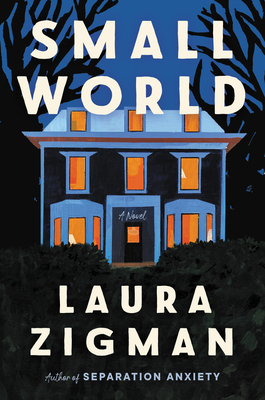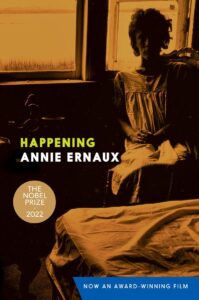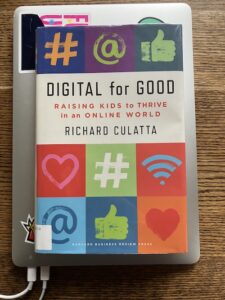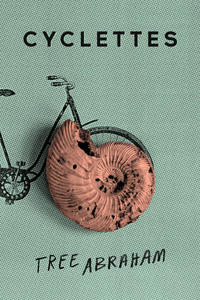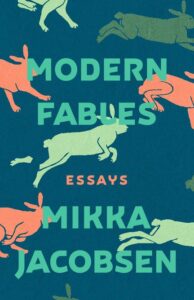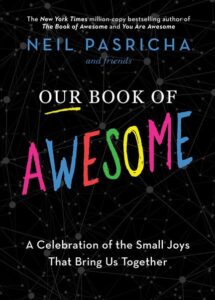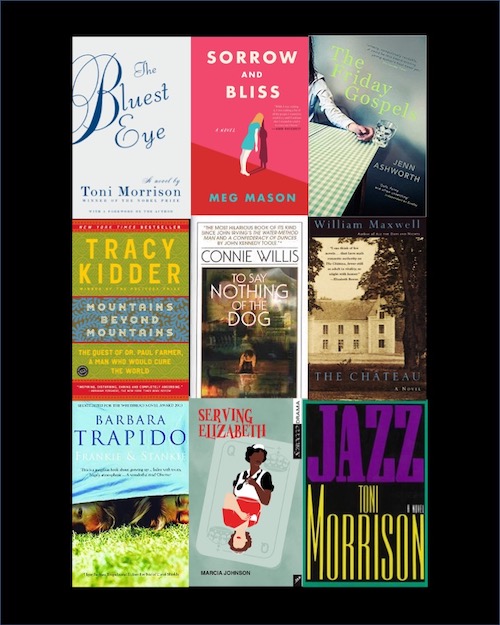January 27, 2023
Small World, by Laura Zigman
I’ve never read Laura Zigman before so I don’t really know what I was expecting with her new novel, Small World, which is weird, because I’d read her interview with Lauren LeBlanc, what turned me onto the novel in the first place, so I knew that this was a story of a divorcee on the cusp of 50 whose sister moves in with her after many years of a continent between them, and that their coming together again prompts a reevaluation of a childhood spent in the shadow of their sister Eleanor, who was born in between them and lived with disabilities until her death which led to the end of their parents’ marriage and their mother’s fervid mix of despair at this loss and years of activism in a fight for disability inclusion.
But I didn’t know how such a book could turn out to be so funny, how sisters Joyce and Lydia could turn out to be both be so difficult (with each other, and the world in general) in such different ways, and how this story that weaves back and forth between the sisters’ childhood and the present day could be so perfectly complemented by the inclusion of found prose poems Joyce has taken from posts on a Neighbourhood app called Small World, similar to Nextdoor:
INCONSIDERATE NOISE
I’ve lived on what used to be
a quiet street in
West Cambridge
I say “used to” because
recently
two families with young children
moved in
and destroyed the peacefulness of the street…
The tension between Joyce and Lydia remains unaddressed until the arrival of new upstairs neighbours operating a yoga studio/wellness centre above their living room forces things to a head, Joyce frustrated by the neighbours’ lack of adherence to rules and general decency, and by Lydia’s lack of support as she tries to resist their friendly overtures, and things between them get even weirder and uncomfortable, but their childhoods made for weird and uncomfortable, for them, a most familiar terrain, and it’s here where they finally begin to understand how much they lost and also never really realized they had during the years they had Eleanor and afterwards.
This is a novel about inclusion on all kinds of levels, about how both sisters felt removed from their mother’s connection to Eleanor, and from the family life that had Eleanor’s care at the centre, and about what community means and what family means and the impossible standards people (mothers in particular) are forced to live up to, and those miraculous people who see us, who save us.
January 26, 2023
Happening
“Through this story, time has been jerked into action and it is dragging me along with it. Now I know that I am determined to go through with this, whatever the cost, in the same way I was determined to go through with my abortion after tearing up the pregnancy certificate, aged 23.
I want to become immersed in that part of my life once again and learn what can be found there. This investigation must be seen in the context of a narrative, the only genre able to transcribe an event that was nothing but time flowing inside and outside of me. The diary and engagement book I kept back then will provide the necessary dates and evidence to establish what happened. Above all I shall endeavour to revisit every single image until I feel that I have physically bonded with it, until a few words spring forth, of which I can say, “yes, that’s it.” I shall try to conjure up each of the sentences engraved in my memory which were either so unbearable or so comforting to me at the time that the mere thought of them today engulfs me in a wave of horror or sweetness.” —Happening, Annie Ernaux
January 23, 2023
Digital for Good, by Richard Culatta
One of the best things I do is subscribe to Courtney R. Martin’s Substack, which is where I encountered her interview with Richard Culatta (headlined “‘Screen Time’ is Dumb”), introducing me to the ideas presented in Culatta’s 2021 book Digital for Good: Raising Kids to Thrive in an Online World, published by Harvard Business Review Press. Culatta is CEO of the International Society for Technology in Education, former Chief Innovation Officer for Rhode Island, and was appointed by President Obama to lead the US Department of Education’s Office of Educational Technology, and I found his book such an inspiring and exciting read, reframing so much of how I’d come to understand my role in helping to shape my children’s relationships to technology. Rather than foregrounding potential online dangers, Culatta argues, we should be giving our kids the tools to be good digital citizen who are able to contribute to conversations, use technology for problem solving, community and connection. Rather than telling our kids they spend too much time on their phones, to select one example, we should teach them to be thoughtful in HOW they use their phones. Culatta recommends researching apps that are educational and interesting and recommending these as we might a good book, a tactic I’ve already tried with my eldest with really interesting and positive results, along with all kinds of other accessible “next steps” that follow each of his book’s chapters, which I’m also really looking forward to putting into play.
January 19, 2023
Cyclettes, by Tree Abraham
I don’t think I could write a memoir through bicycles, though I’d like to consider it—the ten year gap following the birth of my child would be conspicuous though, and there’ve been other holes. I’d have to write about leaving bikes in the driveaway that my parents would back over. (When’s the last time I just dropped a bike somewhere? From Cyclettes: “In suburb childhood when we were done with our bikes, we could smash them down on the front lawn or driveway or any old place we pleased…The bikes were not a thief’s commodity; they were ours like a worn pair of shoes shaped to our foot’s print.) I’d write about our bicycles in Japan which we rode around with in the company of our friends (I think I rode in a car not even five times during that time) like a pack of suburban kids, and the freedom of those days (and also the impossible feat of the obachans who managed to ride in the rain while holding umbrellas). About the metal basket on my bike today, a bike we only got tuned up in the midst of the pandemic when it seemed impossible to go anywhere any other way, and how wonderful the world feels when my basket is packed with things like donuts, potato chips, or library books. I’d think about all the bikes I’ve had throughout my life and where some of them might be now—the bike from my freewheeling fourth year in university lived in my shed until last summer when we finally put it out in the garbage because the tires were shots, and it only had one pedal, having long ago been pilfered for parts.
I loved Tree Abraham’s Cyclettes, a beautiful amalgam of text fragments and image that is to bicycles as Leanne Shapton’s Swimming Studies was to swimming. Abraham takes her reader from her Ottawa childhood (showing stills from a video of her very first bike ride) through childhood and adolescence, and across the world as she works in international development, living abroad and travelling extensively, riding bikes, observing bikes. Following her path, coming of age: “My heart beats so strong it resounds as gong. I am flying. Only the bike can keep up with the exhilarated acceleration of my spirit.”
Her impulse is to go, to ride, to render the world whole and wide…until she arrives in New York City and finally stops, her first big ride to the beach, to the sea, full page spread of her handlebars and the beach—what a TRIUMPH. (Pun kind of intended.)
January 16, 2023
Modern Fables, by Mikka Jacobsen
Modern Fables started out strong and never quit, a collection of personal essays that begin with a wake (with whisky, which leads to a brawl) and concludes with a wedding (with watermelon vodka-cocktails, which leads to Jacobsen fucking the best man, and the dissolution of her friendship with the bride). And in between, a wide of stories that take no sides, but instead examine every side—on sports and mascots (you can read an excerpt at 49thShelf); about a white Albertan’s relationship to the Indigenous peoples upon whose land she lives (complicated by her psychologist mother’s shamanism); such an artful revenge essay on a shitty ex-lover who turns out to be a plagiarist but which is also a treatise on women’s work and textile arts, and Mrs. Ramsay’s brown stocking.
In “Kurt Vonnegut Lives on Tinder,” Jacobsen notes how an affinity for the Slaughterhouse Five author is shorthand for something on the popular hook-up app, and resolves to figure out just what that means. “Modern Fables” tells the story of a relationship with a seeming pathological liar, and also catfishing, and cats, and rabbits, and other dead household pets. “Me vs. Brene Brown” is another story of a love story gone sour, in this case between Jacobsen and Brown’s ideas about been empathy and shame, which seem revolutionary at first, but Jacobsen soon realizes she’s read something like them else before (oh, yeah, right, in almost every work of literature ever, not least of all The Scarlet Letter), not to mention how Brown’s work seems to preclude the possibility of a fulfilling life outside of a nuclear family, and what Brown’s folksiness might suggest about what she thinks of the intelligence of her readership. And finally, “David Silver,” taking on the 90210 actor and other notable Davids (including he who battled Goliath) in a rich and provocative piece on mental illness, convening with the spirit world, and the possibility of cosmic order.
I loved this book, a collection that relit my flame of passion for the personal essay, a collection up there with Susan Olding’s two, which are some of the finest in CanLit—in Freehand Books, Jacobsen and Olding share a publisher. These essays are gorgeous, brutal, stunningly crafted, and pack a punch, like a one-two, WHAM, and then another, and then another, you’re sad when it’s all done.
January 10, 2023
The Radiant Way, Again.

The case against rereading The Radiant Way, by Margaret Drabble, was that my copy was a battered paperback with a tiny faded font, the cover stuck on with Scotch tape, that the novel was nearly 400 pages long, and that my ambition to reread Drabble’s entire ouvre in order a few years back had fizzled into nothing. That I’d just spent an entire fortnight on holiday reading one splendid back list book after another, and perhaps this one wouldn’t measure up. That I have a small mountain of brand new books to be read and if I fail to tackle it, the pile could possibly overwhelm me.
The case for it, however: that this was, perhaps, one of the most pivotal novels of my life. A novel that helped me come into my own as a reader and to begin to come into my own as a writer, after years of having my reading selections determined by course lists and ideas about what the classics were. In 2004, I picked up The Radiant Way in a Japanese bookshop (Wantage Books in Kobe, though there is a stamp for something called Juso Academy Used English Bookstore on the inside cover), the first Margaret Drabble novel I’d ever read, and I fell in love with this work, and decided that this was kind of book I’d like to read and write forever. And yes, in 2020, I’d decided to read through all her novels again (I have them all—secondhand copies until The Red Queen, at which point I began to read her as new hardbacks instead of battered old Penguins) but it never worked out. The early Margaret Drabbles were never so resonant for me anyway, too dated by the time I read them, preoccupied by once-provocative ideas that had ceased to be so. Too fixed in the first person, shallow in their grasp—but then perhaps I was expecting too much from novels written by someone in their early 20s more than 60 years ago.
I preferred Drabble’s novels published in the 1970s to the early ones anyway, but 1987’s The Radiant Way was where it really starts for me, possibly because it’s where it DID start for me. And I wanted to read it again, to see if it would measure up to my first experience of it almost twenty years ago when I was twenty-five and on the cusp of so many things, idealistic and yet disbelieving that real life could ever happen. When I didn’t know the stakes of things.
So I picked it up. And then closed it—the tape! That font! And then I opened it again, and started reading: “New Year’s Eve, and the end of a decade. A portentous moment, for those who pay attention to portents.” And I do pay attention to portents, so kept reading, supposing this a most fitting book for early January, and immediately captured by the incredible omniscience of this story, and the Dalloway-esque preparations for the Headleand’s New Year’s Party, except that Liz is hardly going to buy the flowers herself. Wife, mother of five, prominent psychiatrist to the upper classes—she is far too busy for that.
And that was it, I was hooked, and I read this book with butterflies in my stomach, as giddy as the first time I’d ever picked it up, moved because everything I’d loved so much about it twenty years ago was still remarkable—that omniscience, the novel’s consciousness of its form, the playfulness, postmodernism, the blurry line between fact and fiction (there is a part about the advent of a new political party which “also attracted the support of a good many of the characters in, and potential readers of, this novel…”), how Drabble is attempting to use the novel as a container for society, for the universe:
“Liz, Esther, and Alix were talking, with much animation and many an apparent non sequitur, about London districts, property prices, houses, the police, no-go areas, rape, violence, murder, robbery, Tennyson and Arthur Hallam, Leslie Stephen and Virginia Woolf… There was, perhaps, a thread linking this rambling, discursive, allusive, exclusive, jumbled topographical discourse…”
But even more remarkable was what I hadn’t noticed the first time—the attendance of characters at the Headleand’s party, for instance, who appear in previous Drabble novels, which I hadn’t yet read in 2004. I was reading this time too as a contemporary of the three protagonists, Liz, Alix and Esther, friends from Cambridge who’d found themselves in very different milieus by middle age, whereas before I’d been twenty years younger—and this is very much a novel about middle age, about middle grounds (Alix, a longtime socialist who’s now disillusioned, wonders if “making up one’s mind involves internalizing lies.)
Mostly, what blew my mind about rereading The Radiant Way was how familiar it all was, and not just because I’ve finally become the age its characters are. But instead how much England in 1980 feels like here and now, the same preoccupations, fears and instability. Rising inflation, right-wing governments, people losing their faith in any wing governments, labour unrest, budget cuts, a sense that the old ways and allegiances don’t apply anymore, disruptive technologies, how the working people pay for this change while the wealthy profit. Crime rates, an obsession with crime rates, and grisly murders, and an unwillingness to address the causes of such crime, and (for the labour types) to address just how difficult people can be—Tories are bad, but also (“wanted, idle, pointless, awful”) people wreck stuff just because they can. The tension between notions of the individual and society, which becomes especially fraught in the Thatcher years and and is so again in our current age of a new-new-Right (“What I can’t see, said Esther to Alix, is what any of this has got to do with you. Or with me. It’s simply not our problem. We didn’t make it, and that’s that. I’ve never met a miner, and I’m sure a miner wouldn’t want to meet me./ It’s not as simple as that, said Alix.)
A book full of questions that we’ve still not yet begun to answer…and yet it gives me some comfort to know that it was ever thus?
Anyway, I absolutely couldn’t get enough of this timely, artful, remarkable novel…but thankfully Drabble followed it up with two more books to make a trilogy, and I’ll be rereading both of these soon.
January 9, 2023
Holiday Reads
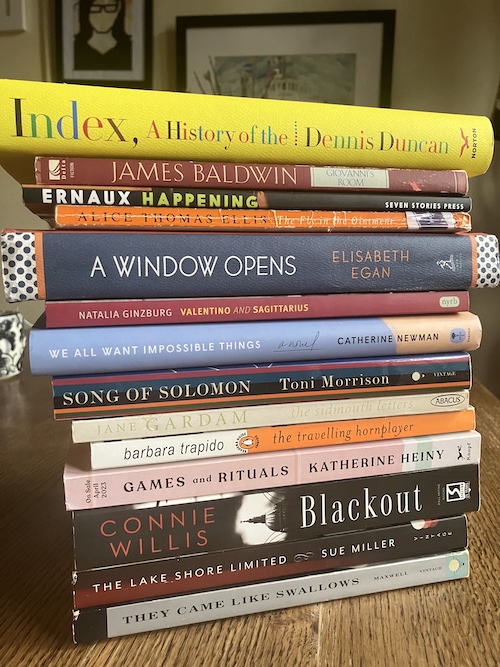
Our holiday break started a day before it was supposed to, as a blizzard raged outside and cancelled school and I curled up with THEY CAME LIKE SWALLOWS, by William Maxwell, a novel set against the Spanish Flu Pandemic and made me wonder why the word “unprecedented” was used at all in March 2020, because it really wasn’t.
And I read and I read, books I’ve been picking up here and there over the last year and finally time away from work (and social media) gave me time to delve into them. Some new books, others authors I love whose backlists I still get to delight my way through (Sue Miller! Toni Morrison! Natalia Ginzburg!). Barbara Trapido, whose work I’m falling in love with. I read HAPPENING, by Annie Ernaux, 2022 Nobel Prize Winner. OMG, SONG OF SOLOMON! GIOVANNI’S ROOM! Connie Willis’s time travel epic (and I have its conclusion still before me).
What a satisfying stack this is, a stack that’s inspired me to read (even) more off the beaten track in 2023, to pursue my own curious avenues.
Also now my “to be read” shelf is as spare and orderly as it will be for at least another year, and so before the deluge of new releases begins, I want to take a moment and appreciate that.
December 19, 2022
Awesome
Once they started coming for positivity, I got defensive. *Who are you calling “toxic”?* I thought. Looking on the bright side, for me, is like a reflex. It’s how I make it through, and while I think all of us learned something from conversations around positive thinking (guys, don’t tell a person with terminal cancer, “You got this”) “toxic positivity” became one of those internet ideas thoroughly drained of its meaning, lugubrious people using it justify their worst impulses in a world that seemed more doom-laden than ever, and I was having none of it. That light at the end of the tunnel was my lodestar and, without it, I’d be a heap on the floor.
And then the light went out, and I lost my way, robbed of tool that had always served me to keep going, one day at a time, and it was at this point that I learned two things about my relationship to positivity. One, that I suffer from anxiety, and so what might look like toxic positivity from the outside is actually me recalibrating from the fact that I was convinced we were all going to die and then we didn’t and oh my god how amazing is that. And two, that while finally learning to feel sad hard and difficult feelings is my path away from anxiety, positivity has a role to play too on this awfully bumpy journey. In March I was really struggling, and actually started a gratitude journal, walking cliche that I’m becoming, and oh my gosh, it’s been a wonderful tool. Along with therapy, and reading, and learning how to dig down deep into painful emotions I’d been avoiding my whole life, and learn how to really feel them. As with all things, it’s not one or the other, but both. The pleasure and the pain, the darkness and the light.
And to that end, Our Book of Awesome, Neil Pasricha’s first “Awesome” book in a decade, has made for a most enjoyable year-end read. Pasricha’s career as a bestselling author began years ago at a remarkably low point from which he started climbing out of the darkness one awesome idea at a time, illuminating miraculous aspects of ordinary life (warm clothes out of the dryer!), which he’d post on a blog that became a book…and here we are. This latest collection includes Pasricha’s own mini-essays, as well as contributions from members of his online community, teachers who’d used the book in their classrooms, and more.
Seeing someone in an online meeting smile as they read the direct message you’ve just sent them in the chat. When a human answers the phone. Actual newspapers. Good hand sanitizer. Library holds. “When the cake pops flawlessly out of the pan.”
Yup. It’s awesome.
December 8, 2022
Ducks: Two Years in the Oil Sands, by Kate Beaton
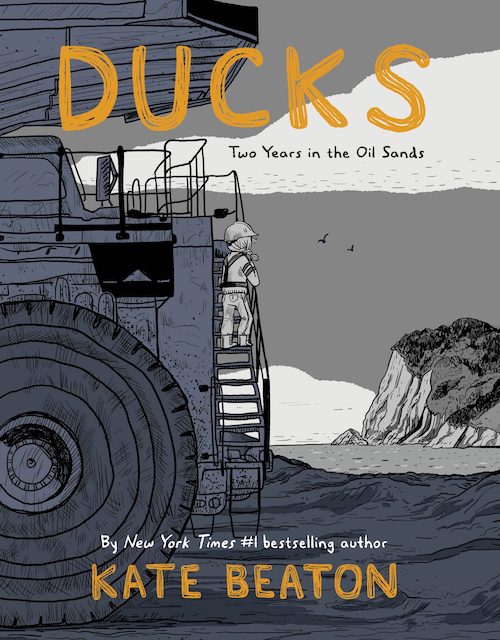
In October I went to see Kate Beaton present her graphic memoir Ducks: Two Years in the Oil Sands at the Art Gallery of Ontario, and the force of that presentation kind of made the book itself beside the point, hence the reason I’m posting about it two months later, but it’s still on my mind.
Before Kate Beaton made a name for herself drawing ridiculously clever comics inspired by classic literature and history, she was an arts grad from Cape Breton, Nova Scotia, with student loans to pay off and little opportunity for lucrative employment, and certainly not anywhere near her home, from which people have been leaving to find work since even before the coal mining industry went bust. In her AGO presentation (the most riveting, hilarious, generous, and vulnerable author talk I’ve ever been to, complete with music and singing), Beaton talked about her grandfather travelling to the prairies to find work as a farmhand, decades before her own journey west. She talked about what it does to a place to be robbed of its people and connections, and what it does to a self to belong to a place where you’re taught that a future isn’t possible.
In the early 2000s, Beaton moved to Alberta for well-paid work in the oil sands, and it was a strange and lonely existence rife with contradictions, which she captures beautifully in Ducks. Lonely and never alone, out of place but surrounded by people she recognizes as like those from home, earning money but nothing to spend it on, small in an immense awe-inspiring landscape being desecrated by industry.
Beaton’s drawings are composed in shades of grey, which is fitting for a story with such nuance. While Beaton doesn’t shy away from showing the reality of such a peculiar social environment, that women suffer in places like this, she also shows that the suffering isn’t limited, and that people being forced to travel far from home for work that is soul-destroying, not to mention ecologically devastating, are suffering too, and the real culprit is capitalism, a system that devalues people and communities, a system that pushes people to the point of breaking.
Beaton’s dream is to work in museums, putting her degree to good use, and she gets her break after a year in the oil sands, which she leaves for a part time position at a marine museum in Victoria…which turns out to barely be enough to live on, let alone pay off her loans, and so Beaton returns for another year in the Oil Sands, but here she begins publishing her comics on her Livejournal, pieces that would become Hark A Vagrant, from which Beaton would make her name, become a bestselling author, and (that rarest of things) an artist able to earn a living from her work. After a stint as a New York art sensation, Beaton once again lives in Cape Breton.
A happy ending then, but Kate Beaton is truly one in a million, and in the years since her time in the oil sands, she hasn’t forgotten what she saw, and what she learned. About humanity in the midst of inhumanity, and the worthiness of ordinary people to live good lives in the places where they come from. It’s not black and white, and that’s why Ducks is worth reading.
